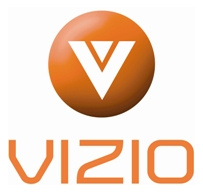 Over the last 2 years Vizio has become a powerful player in the HDTV market by selling low priced displays. Now it looks like some of the more established TV manufacturers have come up with a new strategy to compete with them. Last week a number of companies that hold MPEG-2 video related patents, including Mitsubishi, Samsung , and JVC, filed suit against them, claiming that Vizio owes licensing fees for components used in their TVs.
Over the last 2 years Vizio has become a powerful player in the HDTV market by selling low priced displays. Now it looks like some of the more established TV manufacturers have come up with a new strategy to compete with them. Last week a number of companies that hold MPEG-2 video related patents, including Mitsubishi, Samsung , and JVC, filed suit against them, claiming that Vizio owes licensing fees for components used in their TVs.
"Vizio's suppliers have licenses for the MPEG-2 patents, and Vizio believes that these licenses extend to Vizio's products," the company said in a statement.
As long as the manufacturers are actually paying the royalties it would seem that Vizio is correct. Just a week after the suit was filed the US Supreme Court threw out a similar case filed by LG Electronics claiming a computer maker owed money for using parts covered by their patents, but for which royalties had already been paid by the manufacturer.
In that case, the court ruled patent holders are only entitled to collect royalties once on each componenent, and that companies which subsequently use the parts in other products aren't liable for any additional royalties. This is known as 'patent exhaustion,' and according to Justice Clarence Thomas it's been the rule in such cases "for over 150 years."











